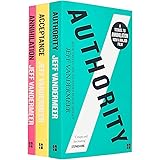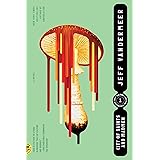
Enjoy fast, free delivery, exclusive deals, and award-winning movies & TV shows with Prime
Try Prime
and start saving today with fast, free delivery
Amazon Prime includes:
Fast, FREE Delivery is available to Prime members. To join, select "Try Amazon Prime and start saving today with Fast, FREE Delivery" below the Add to Cart button.
Amazon Prime members enjoy:- Cardmembers earn 5% Back at Amazon.com with a Prime Credit Card.
- Unlimited Free Two-Day Delivery
- Streaming of thousands of movies and TV shows with limited ads on Prime Video.
- A Kindle book to borrow for free each month - with no due dates
- Listen to over 2 million songs and hundreds of playlists
- Unlimited photo storage with anywhere access
Important: Your credit card will NOT be charged when you start your free trial or if you cancel during the trial period. If you're happy with Amazon Prime, do nothing. At the end of the free trial, your membership will automatically upgrade to a monthly membership.
Buy new:
-26% $13.29$13.29
Ships from: Amazon.com Sold by: Amazon.com
Save with Used - Good
$11.54$11.54
Ships from: Amazon Sold by: ZBK Wholesale

Download the free Kindle app and start reading Kindle books instantly on your smartphone, tablet, or computer - no Kindle device required.
Read instantly on your browser with Kindle for Web.
Using your mobile phone camera - scan the code below and download the Kindle app.

OK
 Audible sample Sample
Audible sample Sample 


Authority: A Novel (The Southern Reach Series, 2) Paperback – May 6, 2014
Purchase options and add-ons
In Authority, the New York Times bestselling second volume of Jeff VanderMeer's Southern Reach trilogy, Area X's most disturbing questions are answered . . . but the answers are far from reassuring.
After thirty years, the only human engagement with Area X—a seemingly malevolent landscape surrounded by an invisible border and mysteriously wiped clean of all signs of civilization—has been a series of expeditions overseen by a government agency so secret it has almost been forgotten: the Southern Reach. Following the tumultuous twelfth expedition chronicled in Annihilation, the agency is in complete disarray.
John Rodrigues (aka "Control") is the Southern Reach's newly appointed head. Working with a distrustful but desperate team, a series of frustrating interrogations, a cache of hidden notes, and hours of profoundly troubling video footage, Control begins to penetrate the secrets of Area X. But with each discovery he must confront disturbing truths about himself and the agency he's pledged to serve.
- Print length352 pages
- LanguageEnglish
- Publication dateMay 6, 2014
- Dimensions5 x 0.9 x 7.5 inches
- ISBN-100374104107
- ISBN-13978-0374104108
Books with Buzz
Discover the latest buzz-worthy books, from mysteries and romance to humor and nonfiction. Explore more
Frequently bought together

Similar items that may deliver to you quickly
 “We live in a universe driven by chance,” his father had said once, “but the bullshit artists all want causality.”Highlighted by 1,210 Kindle readers
“We live in a universe driven by chance,” his father had said once, “but the bullshit artists all want causality.”Highlighted by 1,210 Kindle readers “So long as you don’t tell people you don’t know something, they’ll probably think you know it.”Highlighted by 1,127 Kindle readers
“So long as you don’t tell people you don’t know something, they’ll probably think you know it.”Highlighted by 1,127 Kindle readers “Never skip a step. Skip a step, you’ll find five more new ones waiting ahead of you.”Highlighted by 837 Kindle readers
“Never skip a step. Skip a step, you’ll find five more new ones waiting ahead of you.”Highlighted by 837 Kindle readers
Editorial Reviews
From Booklist
Review
“Authority isn't a book that just picks up where the last one left off. Instead, it's packed full of new pleasures, not only new characters and settings but whole new kinds of writing. If Annihilation is an expedition novel painted with a thick coat of weird, then Authority is a spy novel given the same dark lacquer . . . Which makes me desperate to know what the third book is going to be like--whether it will be some mixture of the two, Jurassic Park meets James Bond, or some third thing entirely.” ―Robin Sloan, author of Mr. Penumbra's 24-Hour Bookstore
“The great thing about Annihilation is the strange, elusive, and paranoid world that it creates. The great thing about Authority is the way it takes the premises that we think we know about that world and turns them inside out, destabilizing everything in a way that makes it even more strange and elusive, and makes us the ones who feel paranoid. A stunning book, followed by a second stunning book that makes you rethink the first.” ―Brian Evenson, author of Last Days with praise for THE SOUTHERN REACH TRILOGY
“A clear triumph for VanderMeer, who after numerous works of genre fiction has suddenly transcended genre with a compelling, elegant and existential story of far broader appeal.” ―Lydia Millet, Los Angeles Times with praise for THE SOUTHERN REACH TRILOGY
“Unsettling and un-put-downable--like an old-fashioned adventure story, only weirder, beautifully written, and not at all old-fashioned.” ―Karen Joy Fowler, BookPage with praise for THE SOUTHERN REACH TRILOGY
“Chilling.” ―Julie Bosman, The New York Times with praise for THE SOUTHERN REACH TRILOGY
“Ingenious.” ―Laura Miller, Salon with praise for THE SOUTHERN REACH TRILOGY
“Enthralling.” ―Tara Wanda Merrigan, GQ with praise for THE SOUTHERN REACH TRILOGY
“Fans of the Lost TV series . . . this one is for you.” ―Molly Driscoll, The Christian Science Monitor
“[Annihilation] will make you believe in the power of science mysteries again.” ―Annalee Newitz, io9 with praise for THE SOUTHERN REACH TRILOGY
“Successfully creepy.” ―Sara Sklaroff, The Washington Post with praise for THE SOUTHERN REACH TRILOGY
“Fascinating.” ―John Domini, Miami Herald with praise for THE SOUTHERN REACH TRILOGY
“[Annihilation] teases and terrifies and fascinates.” ―Kevin Nguyen, Grantland with praise for THE SOUTHERN REACH TRILOGY
“Dazzling.” ―Peter Straub, author of Lost Boy, Lost Girl with praise for THE SOUTHERN REACH TRILOGY
“Haunted and haunting.” ―Kelly Link, author of Magic for Beginners with praise for THE SOUTHERN REACH TRILOGY
About the Author
Excerpt. © Reprinted by permission. All rights reserved.
Authority
A Novel
By Jeff VandermeerFarrar, Straus and Giroux
Copyright © 2014 VanderMeer Creative, Inc.All rights reserved.
ISBN: 978-0-374-10410-8
Contents
Title Page,Copyright Notice,
Dedication,
Part One: Incantations,
000,
001: Falling,
002: Adjustments,
003: Processing,
004: Reentry,
Part Two: Rites,
005: The First Breach,
006: Typographical Anomalies,
007: Superstition,
008: The Terror,
009: Evidence,
010: Fourth Breach,
011: Sixth Breach,
012: Sort of Sorting,
013: Recommendations,
014: Heroic Heroes of the Revolution,
015: Seventh Breach,
016: Terroirs,
017: Perspective,
018: Recovery,
Part Three: Hauntings,
000,
020: Second Recovery,
021: Repeating,
022: Gambit,
023: Break Down,
00X,
Part Four: Afterlife,
Acknowledgments,
Also by Jeff VanderMeer,
A Note About the Author,
Copyright,
CHAPTER 1
INCANTATIONS
000
In Control's dreams it is early morning, the sky deep blue with just a twinge of light. He is staring from a cliff down into an abyss, a bay, a cove. It always changes. He can see for miles into the still water. He can see ocean behemoths gliding there, like submarines or bell-shaped orchids or the wide hulls of ships, silent, ever moving, the size of them conveying such a sense of power that he can feel the havoc of their passage even from so far above. He stares for hours at the shapes, the movements, listening to the whispers echoing up to him ... and then he falls. Slowly, too slowly, he falls soundless into the dark water, without splash or ripple. And keeps falling.
Sometimes this happens while he is awake, as if he hasn't been paying enough attention, and then he silently recites his own name until the real world returns to him.
001: FALLING
First day. The beginning of his last chance.
"These are the survivors?"
Control stood beside the assistant director of the Southern Reach, behind smudged one-way glass, staring at the three individuals sitting in the interrogation room. Returnees from the twelfth expedition into Area X.
The assistant director, a tall, thin black woman in her forties, said nothing back, which didn't surprise Control. She hadn't wasted an extra word on him since he'd arrived that morning after taking Monday to get settled. She hadn't spared him an extra look, either, except when he'd told her and the rest of the staff to call him "Control," not "John" or "Rodriguez." She had paused a beat, then replied, "In that case, call me Patience, not Grace," much to the stifled amusement of those present. The deflection away from her real name to one that also meant something else interested him. "That's okay," he'd said, "I can just call you Grace," certain this would not please her. She parried by continually referring to him as the "acting" director. Which was true: There lay between her stewardship and his ascension a gap, a valley of time and forms to be filled out, procedures to be followed, the rooting out and hiring of staff. Until then, the issue of authority might be murky.
But Control preferred to think of her as neither patience nor grace. He preferred to think of her as an abstraction if not an obstruction. She had made him sit through an old orientation video about Area X, must have known it would be basic and out of date. She had already made clear that theirs would be a relationship based on animosity. From her side, at least.
"Where were they found?" he asked her now, when what he wanted to ask was why they hadn't been kept separate from one another. Because you lack the discipline, because your department has been going to the rats for a long time now? The rats are down there in the basement now, gnawing away.
"Read the files," she said, making it clear he should have read them already.
Then she walked out of the room.
Leaving Control alone to contemplate the files on the table in front of him—and the three women behind the glass. Of course he had read the files, but he had hoped to duck past the assistant director's high guard, perhaps get her own thoughts. He'd read parts of her file, too, but still didn't have a sense of her except in terms of her reactions to him.
His first full day was only four hours old and he already felt contaminated by the dingy, bizarre building with its worn green carpet and the antiquated opinions of the other personnel he had met. A sense of diminishment suffused everything, even the sunlight that halfheartedly pushed through the high, rectangular windows. He was wearing his usual black blazer and dress slacks, a white shirt with a light blue tie, black shoes he'd shined that morning. Now he wondered why he'd bothered. He disliked having such thoughts because he wasn't above it all—he was in it—but they were hard to suppress.
Control took his time staring at the women, although their appearance told him little. They had all been given the same generic uniforms, vaguely army-issue but also vaguely janitorial. Their heads had all been shaved, as if they had suffered from some infestation, like lice, rather than something more inexplicable. Their faces all retained the same expression, or could be said not to retain any expression. Don't think of them by their names, he'd told himself on the plane. Let them carry only the weight of their functions at first. Then fill in the rest. But Control had never been good at remaining aloof. He liked to burrow in, try to find a level where the details illuminated without overwhelming him.
The surveyor had been found at her house, sitting in a chair on the back patio.
The anthropologist had been found by her husband, knocking on the back door of his medical practice.
The biologist had been found in an overgrown lot several blocks from her house, staring at a crumbling brick wall.
Just like the members of the prior expedition, none of them had any recollection of how they had made their way back across the invisible border, out of Area X. None of them knew how they had evaded the blockades and fences and other impediments the military had thrown up around the border. None of them knew what had happened to the fourth member of their expedition—the psychologist, who had, in fact, also been the director of the Southern Reach and overridden all objections to lead them, incognito.
None of them seemed to have much recollection of anything at all.
* * *
In the cafeteria that morning for breakfast, Control had looked out through the wall-to-wall paneled window into the courtyard with its profusion of stone tables, and then at the people shuffling through the line—too few, it seemed, for such a large building—and asked Grace, "Why isn't everyone more excited to have the expedition back?"
She had given him a long-suffering look, as if he were a particularly slow student in a remedial class. "Why do you think, Control?" She'd already managed to attach an ironic weight to his name, so he felt as if he were the sinker on one of his grandpa's fly rods, destined for the silt near the bottom of dozens of lakes. "We went through all this with the last expedition. They endured nine months of questions, and yet we never found out anything. And the whole time they were dying. How would that make you feel?" Long months of disorientation, and then their deaths from a particularly malign form of cancer.
He'd nodded slowly in response. Of course, she was right. His father had died of cancer. He hadn't thought of how that might have affected the staff. To him, it was still an abstraction, just words in a report, read on the plane down.
Here, in the cafeteria, the carpet turned dark green, against which a stylized arrow pattern stood out in a light green, all of the arrows pointing toward the courtyard.
"Why isn't there more light in here?" he asked. "Where does all the light go?"
But Grace was done answering his questions for the moment.
* * *
When one of the three—the biologist—turned her head a fraction, looking into the glass as if she could see him, Control evaded that stare with a kind of late-blooming embarrassment. Scrutiny such as his was impersonal, professional, but it probably didn't feel that way, even though they knew they were being watched.
He hadn't been told he would spend his first day questioning disoriented returnees from Area X, and yet Central must have known when he'd been offered the position. The expedition members had been picked up almost six weeks ago, been subjected to a month of tests at a processing station up north before being sent to the Southern Reach. Just as he'd been sent to Central first to endure two weeks of briefings, including gaps, whole days that slid into oblivion without much of anything happening, as if they'd always meant to time it this way. Then everything had sped up, and he had been given the impression of urgency.
These were among the details that had caused a kind of futile exasperation to wash over him ever since his arrival. The Voice, his primary contact in the upper echelons, had implied in an initial briefing that this was an easy assignment, given his past history. The Southern Reach had become a backward, backwater agency, guarding a dormant secret that no one seemed to care much about anymore, given the focus on terrorism and ecological collapse. The Voice had, in its gruff way, typified his mission "to start" as being brought in to "acclimate, assess, analyze, and then dig in deep," which wasn't his usual brief these days.
During an admittedly up-and-down career, Control had started as an operative in the field: surveillance on domestic terror cells. Then he'd been bumped up to data synthesis and organizational analysis—two dozen or more cases banal in their similarities and about which he was forbidden to talk. Cases invisible to the public: the secret history of nothing. But more and more he had become the fixer, mostly because he seemed better at identifying other people's specific problems than at managing his own general ones. At thirty-eight, that was what he had become known for, if he was known for anything. It meant you didn't have to be there for the duration, even though by now that's exactly what he wanted: to see something through. Problem was, no one really liked a fixer—"Hey, let me show you what you're doing wrong"—especially if they thought the fixer needed fixing from way back.
It always started well, even though it didn't always end well.
The Voice had also neglected to mention that Area X lay beyond a border that still, after more than thirty years, no one seemed to understand. No, he'd only picked up on that when reviewing the files and in the needless replication from the orientation video.
Nor had he known that the assistant director would hate him so much for replacing the missing director. Although he should have guessed; according to the scraps of information in her file, she had grown up lower-middle class, had gone to public school at first, had had to work harder than most to get to her current position. While Control came with whispers about being part of a kind of invisible dynasty, which naturally bred resentment.
There was no denying that fact, even if, up close, the dynasty was more like a devolving franchise.
"They're ready. Come with me."
Grace, conjured up again, commanding him from the doorway.
There were, he knew, several different ways to break down a colleague's opposition, or their will. He would probably have to try all of them.
Control picked up two of the three files from the table and, gaze now locked in on the biologist, tore them down the middle, feeling the torque in his palms, and let them fall into the wastebasket.
A kind of choking sound came from behind him.
Now he turned—right into the full force of the assistant director's wordless anger. But he could see a wariness in her eyes, too. Good.
"Why are you still keeping paper files, Grace?" he asked, taking a step forward.
"The director insisted. You did that for a reason?"
He ignored her. "Grace, why are none of you comfortable using the words alien or extraterrestrial to talk about Area X?" He wasn't comfortable with them, either. Sometimes, since he'd been briefed on the truth, he'd felt a great, empty chasm opening up inside of him, filled with his own screams and yelps of disbelief. But he'd never tell. He had a face for playing poker; he'd been told this by lovers and by relatives, even by strangers. About six feet tall. Impassive. The compact, muscular build of an athlete; he could run for miles and not feel it. He took pride in a good diet and enough exercise, although he did like whiskey.
She stood her ground. "No one's sure. Never prejudge the evidence."
"Even after all this time? I only need to interview one of them."
"What?" she asked.
Torque in hands transformed into torque in conversation.
"I don't need the other files because I only need to question one of them."
"You need all three." As if she still didn't quite understand.
He swiveled to pick up the remaining file. "No. Just the biologist."
"That is a mistake."
"Seven hundred and fifty-three isn't a mistake," he said. "Seven hundred and twenty-two isn't a mistake, either."
Her eyes narrowed. "Something is wrong with you."
"Keep the biologist in there," he said, ignoring her but adopting her syntax. I know something you don't. "Send the others back to their quarters."
Grace stared at him as if he were some kind of rodent and she couldn't decide whether to be disgusted or pitying. After a moment, though, she nodded stiffly and left.
He relaxed, let out his breath. Although she had to accept his orders, she still controlled the staff for the next week or two, could check him in a thousand ways until he was fully embedded.
Was it alchemy or a true magic? Was he wrong? And did it matter, since if he was wrong, each was exactly like the others anyway?
Yes, it mattered.
This was his last chance.
His mother had told him so before he'd come here.
* * *
Control's mother often seemed to him like a flash of light across a distant night sky. Here and gone, gone and here, and always remembered; perhaps wondered what it had been—what had caused the light. But you couldn't truly know it.
An only child, Jackie Severance had followed her father into the service and excelled; now she operated at levels far above anything her father, Jack Severance, had achieved, and he had been a much-decorated agent. Jack had brought her up sharp, organized, ready to lead. For all Control knew, Grandpa had made Jackie do tire obstacle courses as a child, stab flour sacks with bayonets. There weren't a whole lot of family albums from which to verify. Whatever the process, he had also bred into her a kind of casual cruelty, an expectation of high performance, and a calculated quality that could manifest as seeming indifference to the fate of others.
As a distant flash of light, Control admired her fiercely, had, indeed, followed her, if at a much lower altitude ... but as a parent, even when she was around, she was unreliable about picking him up from school on time or remembering his lunches or helping with homework—rarely consistent on much of anything important in the mundane world on this side of the divide. Although she had always encouraged him in his headlong flight into and through the service.
Grandpa Jack, on the other hand, had never seemed fond of the idea, had one day looked at him and said, "I don't think he has the temperament." That assessment had been devastating to a boy of sixteen, already set on that course, but then it made him more determined, more focused, more tilted skyward toward the light. Later he thought that might have been why Grandpa had said it. Grandpa had a kind of unpredictable wildfire side, while his mother was an icy blue flame.
When he was eight or nine, they'd gone up to the summer cottage by the lake for the first time—"our own private spy club," his mother had called it. Just him, his mother, and Grandpa. There was an old TV in the corner, opposite the tattered couch. Grandpa would make him move the antenna to get better reception. "Just a little to the left, Control," he'd say. "Just a little more." His mother in the other room, going over some declassified files she'd brought from the office. And so he'd gotten his nickname, not knowing Grandpa had stolen it from spy jargon. As that kid, he'd held that nickname close as something cool, something his grandpa had given him out of love. But he was still astute enough not to tell anyone outside of family, even his girlfriends, for many years. He'd let them think that it was a sports nickname from high school, where he'd been a backup quarterback. "A little to the right now, Control." Throw that ball like a star. The main thing he'd liked was knowing where the receivers would be and hitting them. Even if always better during practice, he had found a pure satisfaction in that kind of precision, the geometry and anticipation.
When he grew up, he took "Control" for his own. He could feel the sting of condescension in the word by then, but would never ask Grandpa if he'd meant it that way, or some other way. Wondered if the fact he'd spent as much time reading in the cottage by the lake as fishing had somehow turned his grandfather against him.
So, yes, he'd taken the name, remade it, and let it stick. But this was the first time he'd told his coworkers to call him "Control" and he couldn't say why, really. It had just come to him, as if he could somehow gain a true fresh start.
A little to the left, Control, and maybe you'll pick up that flash of light.
(Continues...)Excerpted from Authority by Jeff Vandermeer. Copyright © 2014 VanderMeer Creative, Inc.. Excerpted by permission of Farrar, Straus and Giroux.
All rights reserved. No part of this excerpt may be reproduced or reprinted without permission in writing from the publisher.
Excerpts are provided by Dial-A-Book Inc. solely for the personal use of visitors to this web site.
Product details
- Publisher : FSG Originals; First Edition (May 6, 2014)
- Language : English
- Paperback : 352 pages
- ISBN-10 : 0374104107
- ISBN-13 : 978-0374104108
- Item Weight : 8.8 ounces
- Dimensions : 5 x 0.9 x 7.5 inches
- Best Sellers Rank: #14,927 in Books (See Top 100 in Books)
- #230 in Exploration Science Fiction
- #407 in Psychological Fiction (Books)
- #1,648 in Literary Fiction (Books)
- Customer Reviews:
Videos
Videos for this product

1:00
Click to play video

Authority By Jeff Vandermeer - Personal Review
✅️ Tom Bryan ✅️

About the author

Called “the weird Thoreau” by the New Yorker, NYT bestseller Jeff VanderMeer has been a published writer since age 14. His most recent fiction is the critically acclaimed novel BORNE, which has received raves from the NYTBR, Los Angeles Times, Washington Post, and many more. Paramount Pictures has optioned BORNE for film.
VanderMeer's Southern Reach trilogy was one of the publishing events of 2014, the trilogy made more than thirty year’s best lists, including Entertainment Weekly’s top 10. Paramount Pictures has made a movie out of the first volume of the Southern Reach, Annihilation, slated for release in 2018 and starring Tessa Thompson, Oscar Isaac, Gina Rodriguez, Natalie Portman, and Jennifer Jason Leigh.
His nonfiction appears in the New York Times, Los Angeles Times, the Guardian, and the Atlantic.com. VanderMeer also wrote the world’s first fully illustrated creative-writing guide, Wonderbook. With his wife, Ann VanderMeer, he has edited may iconic anthologies. He lives in Tallahassee, Florida, with two wonderful cats. His hobbies include hiking, reading, and bird watching.
Customer reviews
Customer Reviews, including Product Star Ratings help customers to learn more about the product and decide whether it is the right product for them.
To calculate the overall star rating and percentage breakdown by star, we don’t use a simple average. Instead, our system considers things like how recent a review is and if the reviewer bought the item on Amazon. It also analyzed reviews to verify trustworthiness.
Learn more how customers reviews work on AmazonReviews with images
-
Top reviews
Top reviews from the United States
There was a problem filtering reviews right now. Please try again later.
Authority, the second book in the series, picks up soon after the end of Annihilation. Our POV guide in that first book was the biologist (each of the four women were known solely by professional title) and in VanderMeer’s follow-up, she, along with the anthropologist and the surveyor, have somehow made their way unnoticed back into the world from Area X and had been picked up by the organization in charge of investigating the mystery—the Southern Reach. None of the three have any memory of how they got where they were found, or of what happened to the psychologist, laying one mystery atop another. Somebody has to figure out how these three women got out of Area X with nobody seeing them (despite the massive round-the-clock surveillance of the border—with cool lasers even!), what happened to the fourth, and oh yeah, what the hell is going on that a portion of our world is being wholly reshaped.
Enter Control. Known as a “fixer” in the larger agency the Southern Reach sits within, Control (a childhood nickname he has taken to heart) is sent in as the new Director to clean things up and start getting usable information about Area X. He employs several methods to do so. One is a series of interviews with the biologist, finally given a name in this book. Two is going through the reports of the prior Director and of the previous expeditions. And three is getting hands-on in the Southern Reach organization—taking his own trip to the Area X entrance, seeing the lab and samples room, and meeting with the scientists. None of this is made easier by a demoralized staff, a resentful Assistant Director, and an interrogation subject that seems to have had her memory wiped. Or by the pressure of his boss (known only as the Voice) who is a tad bit demanding or his mother, a star agent in the agency who told poor Control this assignment was his “last chance” to prove himself.
I don’t want to say much more about the plot because one, it should just be left for the reader to enjoy without even minor spoilers and two, much of what is revealed in Authority casts a whole new light upon the events of Annihilation, and lest anyone reading this has yet to read the first book, I don’t want to ruin that effect. So here endeth the synopsis.
As for why I loved it—oh, so many reasons. First and foremost is the masterful sense of dread that utterly permeates the novel. At the core of the dread, of course, is Area X, akin to a virulent illness that struck an isolated area but which everyone fears might leak through the containment area. If it hasn’t already. That fear is what lends a taste of menace to every small detail regarding possible vectors. What about that potted plant in the old Director’s office? Why did the author just describe the front lawn—is there something I should see there? What about that smeared mosquito on the windshield, why bother with such a tiny detail? What is that strange smell that keeps cropping up; is it really just a cleaning liquid? Should the border guards really be eating those white rabbits? Why are birds mentioned so often? Should I pay more attention to that ant crawling on that woman’s neck? Why does that dead mosquito now have mold on it? What about the water stains on the ceiling tiles? Time and time again, a mundane detail of setting is lent a patina of horror merely due to context.
Beyond what emanates from Area X’s existence, the secrets within secrets, the agency factions, the pressure exerted on Control by Voice, his mother, his family legacy within the agency, all add to the tension so that if the reader isn’t questioning whether some detail is a sign of Area X’s reach, he/she is worrying if some detail is a sign of active obstruction—why does the old Director’s cell phone keep showing up, who is the Voice really, where does that ladder go, are those stains on the carpet coffee or blood, why is it so hard to find the janitor, who is planting bugs, who is ransacking an office, why is the Assistant Director so actively hostile, why did the old Director hide her notes. And the list of questions goes on and on as the suspicion grows, until one wonders, like Control, if they are adding a weight of importance to inconsequential actions and sights. Is it just paranoia?
And of course, the horror also grows thanks to some old-style actual horror moments—grotesque images, strange words written in strange places, a Blair Witch-like video record, swinging light bulbs, weird noises, flickering fluorescents, nightmares, breathing in the dark. And more.
So creepy. Oh so creepy. Wonderfully, deliciously, constantly creepy.
Beyond the atmosphere, I also loved the many resonances that echo throughout the novel. The white rabbits for instance, used in an experiment years ago and still popping up. Besides the way they add to the pervading dread, what a perfect animal choice. You can’t think “white rabbit” without thinking of Alice’s introduction to Wonderland—a world of the strange and macabre. Or (though I suppose this might be age-dependent) of Jefferson Airplane’s “White Rabbit”, with its pills and chessboard and mother and fungus and mouse, all of which make an appearance in Authority (and maybe too a white knight and red queen?). Or the aforementioned birds: the several bird sightings, the biologist calling herself “ghost bird”, Control thinking he’d “fly free above the Southern Reach, swooping down from some remote perch to manage things,” an albatross.
Or as well, all the many, many references to failed communications: attempts that are incomplete or only half-understood, missed phone calls, scattered words overheard, files that are missing or incomplete, videos with gaps in them. The reader is faced with the same, not just through the character’s third person narrative but by the structure of the narrative as well, which moves back and forth in time, introduces the beginnings of conversations but skips over the ensuing dialogue. The reader again begins to feel like control: “That kind of self-control had made him look not just at the words but at the pauses between them . . . The ghost was right there, in the transcripts . . . moving through the text. Things that showed themselves in the empty spaces . . . the undercurrents and hidden references.” Soon one begins to wonder if Area X is not merely an environmental event but a linguistic/mental one, or perhaps this is a self-imposed plague: “he used the internet solely for research and admin. He believed a kind of fragmentation had crept into people’s minds in the modern era.” Language—its limits, its biases—played a large role in Annihilation and it does here as well. What does it mean, for instance, beyond those references, that characters in book one are known by their jobs, and here one is known as “Control”? Does it matter that it was a name he was given? Or that he now chooses to use it? Does it say something about him or only seem to (there are lots of references to masks as well—are names merely one kind?). What does it mean that the biologist gives herself a new name? Or that the Assistant Director says Control should call her “Patience” rather than her real name, Grace.
I could go on; there are many such examples. But I won’t. Suffice to say an attentive reader will be greatly reward with this richly layered book.
VanderMeer shows a nice insight into regular ole mortal issues as well, whether it be office politics, humanity’s tendency when faced with something inexplicable to try and “blast it to hell,” the inertia of organizations and the way they break down as the people within them seek their own agendas and/or fail to communicate, people’s contrary desires with regard to true wilderness: [they] want to be close to but not part of. They didn’t want the fearful unknown of a ‘pristine wilderness.’ They didn’t want a soulless artificial life, either.” How the trappings of science, with its white coats and sparkling glassware and “cathedral” of a lab and bespectacled actors, often presents an exclusively rational and perpetually moving forward image that hides the truth that it can be as much a superstition or faith fumbling in the darkness toward some sort of answers. And then of course, there is the age-old insight into family, the way family molds us into who we are, whether we run toward or away from them.
The basic building blocks of the novel, as with the first book, are near-perfect: pace, characterization, structure, style, language (listen to the sound quality, for instance, of “the havoc of their passage). Plot-wise, those readers of book one desiring some answers will find many here. And most, if not all, the new mysteries set in place in Authority are resolved by the end, though of course leaving room for book three. Just as with Authority, I think this book could easily end as it does (though granted, many people might be ticked off it had).
I loved Annihilation, as I said in our earlier review of it, but I love-loved Authority (at this rate, I may have to marry the third book in the trilogy), and with that final book coming in the fall, VanderMeer very well may end up with three titles on my Best of the Year list. A must-read.
(first appeared on fantasyliterature.com)
In Annihilation, we followed a single character ("the biologist") through Area X, a pristine wilderness separated from the rest of the country by a barrier with a nature we never really understand (perhaps because even people in the world of the story don't fully understand it, either). In this book, we focus on a different character, John (who insists on being called "Control," which sounds rather silly, but later in the book he begins to question the choice of this nickname and what it implies about him and his mission). He has been sent to be the director of the Southern Reach area (basically an installation/organization that protects and defends the Area X border) after the previous director (who was a character in book one) has disappeared. He encounters a lot of hostilities from the assistant director (Grace) and a lot of odd characters among his new subordinates/coworkers. Although in fairness, you would have to be eccentric to accept a position at a place like Southern Reach and stay there for any length of time.
My favorite parts of the book are when Control is gathering information. Whether that is watching videos from expeditions to Area X, or going through items and papers from the Director's office (which is now his office), or interviewing the biologist from the previous expedition, or taking a tour of the scientific research facilities and trying to make sense of all the weirdness -- these were the bits of the story I was most interested in. And when the story was heavy with those bits of information, I read with complete attention, often late at night, and didn't want to put the book down. Those parts carried me through the other parts, too, in a sense.
But then, there were the other parts, when Control went home from work. Or flashbacks to his past (perhaps triggered by the fact that he spent some of his childhood in the area nearby). I just don't have the same level of interest in reading about getting drunk at bars, memories of past one-night stands, etc.
The biologist in Annihilation had a lot of flashbacks, too. But they were more interesting to me. They gave the reader a sense of why someone would agree to go on what could very well be a suicide mission. The biologist was a flawed person and the flashbacks and personal thoughts helped us see her flaws, helped us understand her better. I never really felt the same connection with Control. He had a flaw that Grace confronts him with and that flaw has definitely shaped his career. So in a sense, some of the background information helps us explain how he got where he is. But, when he was in a position to take the job or not, it wasn't the same as the biologist deciding to go on the expedition. It might well have been a dead end, career-wise, but that's not the same as risking one's life. And thus, I just wasn't as interested in his past. I didn't find him as compelling.
If these books are meant to be character studies, well, they certainly achieve that aim. Control is a complex character and he is sympathetic (and not just because he is the reader's proxy in an unfamiliar situation). You do get the sense that he wants to solve mysteries associated with Area X and Southern Reach, itself. And since you, as the reader, want those answers as well, you are rooting for him.
I have some issues with Control's mother, as a character. She is some sort of secret agent who can't ever talk about her position but seems to be rather high up at a place called "Central," which seems to have authority over Southern Reach facilities and personnel. She is able to pull strings to get Control the Director's position at Southern Reach. Or something. But she also goes out in the field on missions a lot, or something. It just seems to be inconsistent with the things I know (or think I know) about the way government agencies work. The director and higher-ups in the CIA don't go undercover. Those are desk/meeting types of jobs. And CIA officials, I would assume, don't appoint their children to important posts. I think there are laws against that.
There were not necessarily a lot of answers in Annihilation. You get a few in Authority, but there are also new questions raised. I was satisfied with the balance here. There's still one book left (I'm already partway through it), after all.
Random other notes: This is basically set in our world; Area X and its border are the only unnatural things. So not a lot of worldbuilding has to be done for outside the Southern Reach facility. The writing style is quite good. I never felt like I missed anything or had to go back and reread it, so I got through the book quickly. (I actually liked the writing style so much I put a bunch of Mr. Vandermeer's other books on my wish list, even though they stray a bit from my usual fare.) The mysteries of Area X and surrounding the biologist as well as the former director are compelling. At first I thought the side characters (scientists, etc.) were just strange, but you learn by the end of the book that they have reasons for being that way, and I ended up thinking their quirks were well done. So there is still a lot to like here. But it is also a different book from Annihilation. (On the other hand, I'm not sure a different expedition getting lost in Area X would have made a good sequel, so maybe this is where the series HAD to go.)
In the end, I did enjoy this enough to immediately continue on to book 3.




























